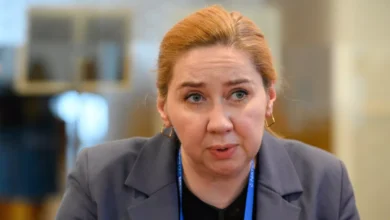New taxes: Will gas stations return to the curb like in the 90s?

Do you remember the days when gasoline was bought just on the side of the roads? Looks like those times may be back. A new draft law from the Cabinet of Ministers, which provides for an advance payment of income tax related to the capacity of tanks at gas stations, may significantly affect the fuel market. Experts warn: such innovations can force 75% of market operators to go into the shadows, which will lead to the sale of gasoline simply from barrels on the roadsides.
Expert comments
Bill No. 11416, registered in the Verkhovna Rada on July 18, 2024, provides for the increase of some taxes and fees, as well as the introduction of new ones. One of the innovations is a tank tax at all gas stations. Dmytro Leushkin, fuel market expert, notes, that this will have several negative consequences:
- Reduction of fuel storage efficiency. Gas station owners can decommission at least half of the tanks at their gas stations, which will make fuel storage less efficient.
- Closing gas stations in rural areas. Gas stations in the villages will not be able to withstand the financial burden and will be closed, which will force motorists from the villages to go to the regional centers for refueling.
- Transition of operators into the shadow. Approximately 75% of fuel market operators will go underground, selling gasoline unofficially from barrels and canisters on the sides of roads to avoid paying taxes.
- Price increase. The 25% of operators that will remain working officially will be forced to raise prices by approximately 2 hryvnias per liter of fuel.
Oleksiy Orzhel, former Minister of Energy and Environmental Protection of Ukraine, believes:
“The increase in the tax burden on gas stations will inevitably lead to a decrease in the number of officially operating gas stations. This may cause fuel shortages in some regions, which will affect the transport infrastructure and the economy in general.”
Analyst Olena Shevchenko emphasizes:
“The introduction of new taxes without taking into account the specifics of the market and the financial capabilities of its participants can lead to a mass transition into the shadows. This will not only reduce revenues to the budget, but also worsen the quality of fuel that will be sold illegally.”
Petro Kuzmenko, a tax specialist, notes:
“Despite the good intentions of the government, such tax changes can cause negative consequences for the country’s economy. A large percentage of operators simply will not be able to withstand the new tax burdens and will be forced to curtail their activities or go into the shadows.”
Yuriy Ivanenko, an expert on economic policy, comments:
“Increasing gas station taxes could have unintended consequences, especially for rural areas where access to gas stations is already limited. In addition, the growing illegal fuel market could become a problem for regulators and lead to a decline in the quality of fuel sold.”
Consequences for motorists
For ordinary motorists, these changes will mean difficulties with refueling and additional costs. Residents of rural areas will be forced to spend more on trips to regional centers, and fuel prices will increase, which will affect the family budget. The quality of fuel sold from roadside drums can be questionable, increasing the risk of damaging your car’s engine.
The Cabinet of Ministers implements these changes in order to increase revenues to the state budget. However, experts doubt the success of this initiative, warning that the tax reform may lead to a decrease in official revenues, because many operators of the fuel market will go into the shadows.
This draft law caused a wide debate among experts and market participants. Some of them believe that the state should look for other ways to replenish the budget without destroying the infrastructure of the fuel market.





